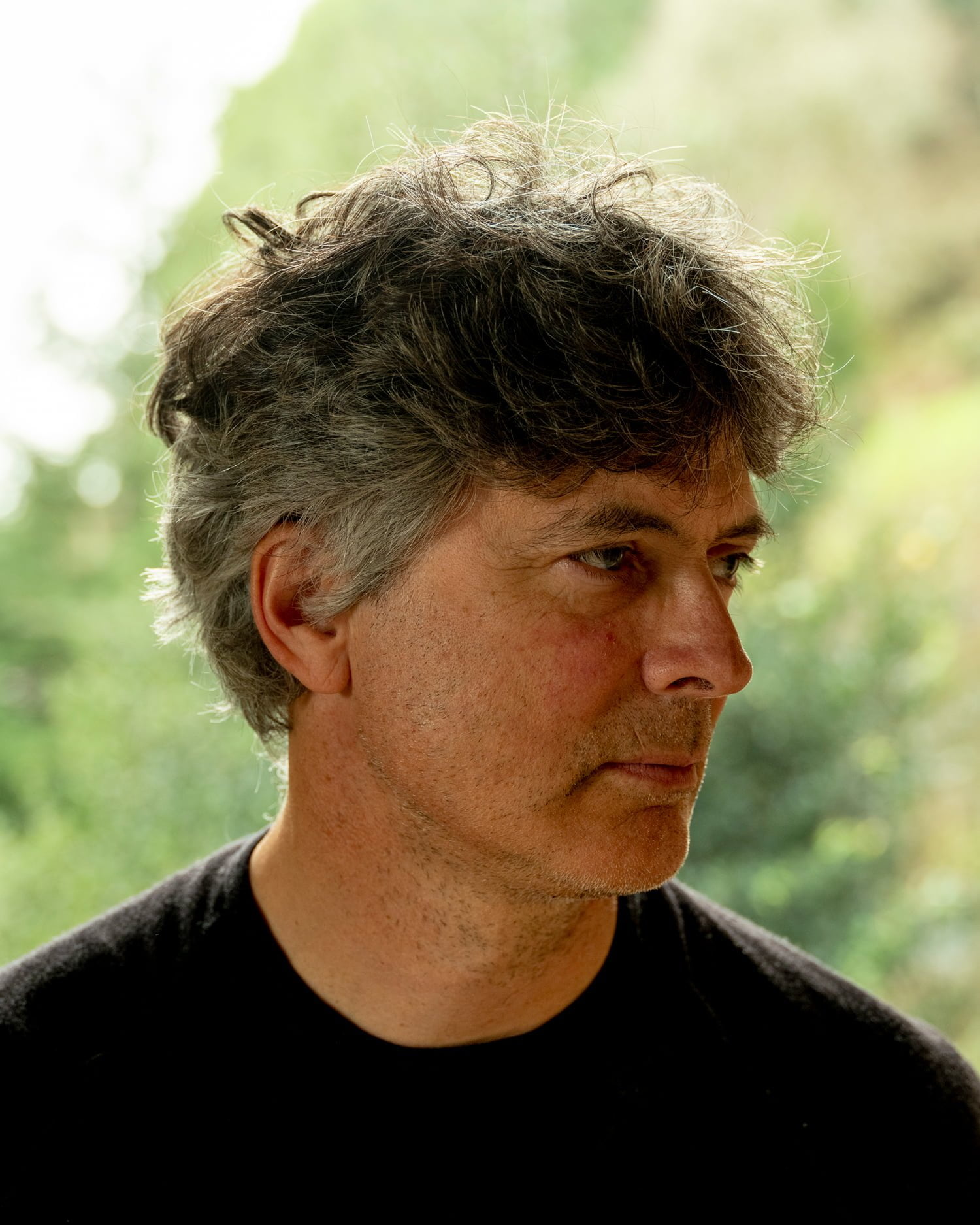The acclaimed author believes it’s time for humanity to get over its main character syndrome, and start reflecting the role of ‘non-human entities’ in the stories we tell.
Amitav Ghosh is a master at making history human. In his vivid, meticulously researched novels, such as Sea of Poppies and The Glass Palace, we see the drama of lives caught up in the colonial era, and feel how people’s actions and experiences echo across continents and generations.
Equally fascinating is the Indian author’s non-fiction work on climate change and culture – not least because it throws his novels into a new light, and even reveals that the person you thought was the main character, perhaps wasn’t at all.
We met Ghosh at this summer’s Bloom Festival in Copenhagen, Denmark, where he spoke about his non-fiction book The Nutmeg’s Curse: Parables for a Planet in Crisis. The book focuses on a very specific event: the 1621 massacre by Dutch naval officers of the population of Indonesia’s Banda islands, which at the time were the world’s only source of nutmeg.
It is a very human drama of greed, power and violence. But, was this really the story of humans, Ghosh asks, or of a species of tree and its fragrant seeds? When the rarity and novelty of nutmeg drove Europeans into a fever, were people the only protagonists? And when its value later tanked and the Dutch found themselves desperately uprooting trees in an effort to shore up prices, who was in control?
Such questions encapsulate the challenge Ghosh sees facing today’s storytellers: we’re used to telling stories about humans – but what about forests, volcanoes, tigers or tides? “The fundamental problem is that language and speech are human attributes, as we understand them,” he says. “So how do we find a way of giving a voice to non-human entities?”

Can we give voice to plants, creatures, storms and seas? That’s the challenge Amitav Ghosh sees facing today’s writers and storytellers. Photo: Mirco Toniolo / ANP
Storytellers of other eras managed it, Ghosh says, but modern novelists struggle – and they urgently need to get better at it. If we fail to see nature as alive, Ghosh warns, we’re all Han Solo in The Empire Strikes Back, hiding out in a cave on an asteroid, only to realize that he’s stumbled into the mouth of some giant space monster.
“The fate of humans, and all our relatives” depends on restoring non-human voices to our stories, he writes.
Voices for the voiceless
It’s an idea that makes a lot of sense in the context of Ghosh’s historical novels, which have often told stories of destinies defined by the trading of natural materials such as timber, rubber and opium. In his trilogy of novels about the opium wars, we see fortunes won and lost in the blink of an eye, dreams going up in smoke and new ones born. But was this a story of merchants, sailors and soldiers, or was it a story of a plant with psychoactive properties, making fools of them all?
The Nutmeg’s Curse shows how the horror and destruction of colonialism were only possible in a world that viewed nature as lacking any kind of voice, life or agency. Not only was anything ‘non-human’ denigrated and exploited, but it was alarmingly easy for colonizers to extend that category to cover large sections of humanity, thus justifying enslavement and mass murder.
The point is, we still live in that world. Whether it’s the exploitation of nature in Indonesia 400 years ago, or the excessive burning of ancient organic matter to fuel society today, it would surely never stand if those non-human voices could be heard in the stories we tell.
Fortunately there are signs that novelists are helping humanity get over its main character syndrome, Ghosh says. Laline Paull’s 2022 novel Pod, told from the perspective of whales and dolphins, is one example he particularly admires. Giving a voice to nature was also very much on his own mind as he worked on his forthcoming novel Ghost Eye, a generation-spanning story about food and family.
The pull of spirituality
The idea of listening for the voice of nature takes the conversation unavoidably in a spiritual direction. Ghosh, who describes himself as the product of a secular intelligentsia and “not religious at all”, nevertheless feels the appeal of the spiritual more and more. “I think one of the lessons that climate change has taught us, that the planetary crisis has taught us, is actually how impoverished that secular worldview has turned out to be.”
Taking inspiration from Icelandic beliefs in the ‘hidden people’, Ghosh has found himself moving towards an attitude he sums up as, “Even if you don’t believe that the stone actually has an elf inside it, why take a chance?” He even argues that religious movements offering a view of the world around us as “imbued with vitality” could be the trigger for mass, transformative climate action.
As for the traditional religions, they have “completely failed us” when it comes to facing up to the planetary crisis, Ghosh believes – with one notable exception. “Nobody talked more sense about the climate than Pope Francis. I think if there’s any one book that anyone should read, it’s his Laudato si’ [the 2015 papal encyclical on ‘care for our common home’]. Pope Francis was the only one who actually bit the nettle and said, really, what we are talking about is changing our ways of life.”
When fact is stranger than fiction
Ghosh’s interest in climate change began with the publication of his 2004 novel The Hungry Tide. The book is set in the Sundarbans mangrove forest – an area that was repeatedly hit by devastating cyclones in the years after the book came out.
Ghosh says: “I’ve lived with cyclones all my life, and they’re very much a part of my mental make-up, as they are for everyone from my part of the world. In that period also there was Hurricane Katrina [which hit New Orleans in August 2005] … and there was also Hurricane Sandy in 2012, which hit New York and killed hundreds of people, and caused an incredible amount of damage.

The Nutmeg’s Curse looks at how non-human entitites have influenced human history. Ghosh notes that the project – which he began during lockdown – came about due to humanity’s collision with a non-human entity: the Covid-19 virus.
“That was when I really began to ask myself these questions, because New York is home to incredibly large numbers of writers, artists, etc and many were affected by Hurricane Sandy. And yet there were no novels about it, there were no stories about it, there was no art about it. So I started asking myself, why?”
In 2016’s The Great Derangement, he argues that the impacts of climate change feel too improbable to make sense in so-called ‘serious’ novels. It’s common, he points out, to hear it said of real events, “If this were in a novel, no one would believe it.” Things that are only somewhat unlikely in real life, are enough to relegate a novel from the esteemed “literary fiction” section to the lesser category of science fiction. It’s as if the impacts of climate – which will only keep getting more improbable and no less real – are “somehow akin to extraterrestrials or interplanetary travel”, Ghosh writes.
Almost a decade on from that book’s publication, literary fiction “hasn’t kept pace” with TV and film, which have gone big on dystopian climate parables, Ghosh says. And even when we see climate stories on screen, “far from sensitizing people to the environmental crisis, if anything, I think they desensitize them because they present them as unlikely, impossible fantasy whereas the real problem is that all of this stuff is real”.
“The fate of humans, and all our relatives, depends on restoring non-human voices to our stories”

Ghosh’s 2019 novel Gun Island is his most direct attempt to square this circle. Touching on climate and migration, it mixes the supernatural with the brutally real, following refugees making their way across the Mediterranean, and mythic figures traversing the globe to escape from vengeful deities.
The book’s theme of migration, and how it relates to climate change, is one Ghosh feels is widely misunderstood. Take scientists, he says. “They are very good at understanding the atmosphere. They are terrible at understanding the ways in which the atmosphere interacts with humans. They imagine the atmosphere as a kind of billiard cue and human beings as billiard balls. You know, the cue strikes them and they go off in all these directions. That is simply not what happens. People have very complex reasons for moving.”
It’s clear from works like The Nutmeg’s Curse that, in Ghosh’s eyes, the climate crisis is much more than just a scientific question. “Most others think about these issues in relation to the future,” he says. “Whereas I see them as being very much rooted in the past – the struggles of the past and historic injustices… I think I’ve always thought of the planetary crisis as being primarily a geopolitical problem, whereas in the West especially, it’s usually conceived of as a sort of techno-scientific issue. I don’t think of it like that at all.”
Let a thousand flowers bloom
As urgent as the crises facing humanity are, translating messages about climate into culture is easier said than done. Ghosh admires those, like the climate science community, who have advanced these messages – but we can’t expect writers to simply pick up scientific reports and adapt them into bestselling novels.
Ghosh says: “What [scientists] think is that they have the message and they want the writers to take out the message. But it just doesn’t work like that. No writer thinks of himself as a propagandist for someone else. I mean, to write a novel, 300 pages, it takes you years! You have to really live it. You have to believe it. If this is genuinely the greatest crisis that humanity has ever faced, you have to expect that there would be millions of different points of view, that there would be millions of different stories. As I see it, let a thousand flowers bloom. It’s not for me to tell any other writer that you must write like this and not like that – everyone must choose for themselves. All I can do is try and think my way. That’s the only way that good writing on these issues will occur, and it’s happening. There are many good writers who are writing about these things in very interesting ways.
“But you can’t just tell people to go out and tell this story. It just doesn’t work like that.”

Cover star Madame Gandhi on the sounds of the Antarctic, free climber Alex Honnold reveals his biggest challenge yet, actor Rainn Wilson embraces his soulful side and much much more!
BOOKS

BIG IDEAS














